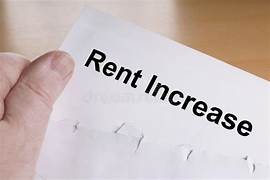Here's how landlords and agents can currently increase rents - and how it will work under the Renters (Reform) Bill.
Section 13 of the Housing Act (1988) is a way for landlords to increase rents for any of their tenancies that run on a periodic basis. This notice will be replaced under the Renters (Reform) Bill, with a mechanism that replicates the existing process under the new tenancy system. So, here's an overview of what's in place now, and how rent increases will work under the Renters (Reform) Bill.
How can private landlords currently increase rents on a tenancy?
Landlords can increase the rent on a tenancy in the following ways:
- Landlords can include a "rent review clause" in an Assured Shorthold Tenancy, which outlines the terms that have to be followed for rents to be increased. The clause will normally include when a review will take place, how much rents may increase, and the notice that the landlord needs to give their tenant.
- At the end of a fixed-term tenancy, rents can be increased in a new fixed-term contract.
- A landlord and tenant can mutually agree to a rent increase during a tenancy - and both parties should keep a written record of that agreement.
- If the fixed-term moves to periodic at the end of the term or if a tenancy is agreed on a periodic basis from the beginning, landlords need to use a section 13 "Landlord’s notice proposing a new rent" form to increase the rent - giving at least one month's notice.
The rent increase needs to be "fair and realistic" - which means it needs to stay in line with the local market rates.
Download your free guide to the Renters (Reform) Bill
When can section 13 notice be used?
A section 13 can't be used in the first year - 52 weeks - of a periodic tenancy. This applies even on a fixed-term tenancy that converts to a periodic tenancy - the start date of the initial fixed-term tenancy starts the countdown.
A section 13 notice also can't be used if there's a rent review clause in place - but if the fixed-term tenancy converts to a periodic tenancy at the end of the term, that rent review clause will no longer be applicable and section 13 can be used.
Similarly, landlords can serve a section 13 notice during a fixed-term tenancy, but rents can't increase until the term has ended.
Rents can also only be increased once a year using this process.
Can a tenant dispute a section 13 notice of a rent increase?
Tenants can dispute a rent through the First-tier Property Tribunal, if they think that the increase is unfair. However, they should first speak to the landlord, to explain their concerns.
If an agreement can't be reached, a tribunal can then help set a new rent for the tenancy - which could be higher than the original rent requested by the landlord.
What's changing under the Renters (Reform) Bill for rent increases?
Under the new tenancy system, all tenancies - with some exceptions - will transition to periodic.
This means that a mechanism similar to section 13 will be the only way that landlords and agents will be able to increase rents.
The notice period that landlords will need to give to their tenants to notify them of a rent increase will double, to two months, and - as is the case now - landlords will only be able to increase rents once a year using this process.
The government will publish a simple form that agents and landlords will need to complete and serve to their tenant to increase rents.
Once the tenant has received the form, they will simply need to accept the amount by paying their rent.
If they want to dispute the amount, they can still do this through the First-tier Tribunal, before the date that they should start paying the new rent amount.
This article is intended as a guide only and does not constitute legal advice. For more information, visit gov.uk.


Share this with
Email
Facebook
Messenger
Twitter
Pinterest
LinkedIn
Copy this link